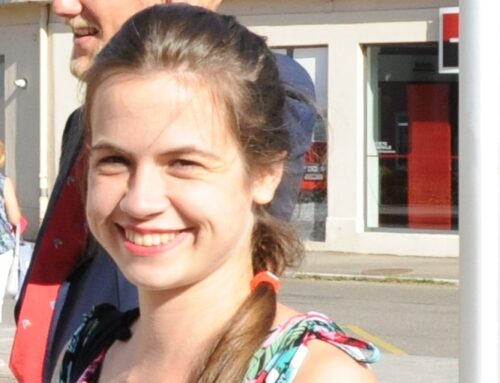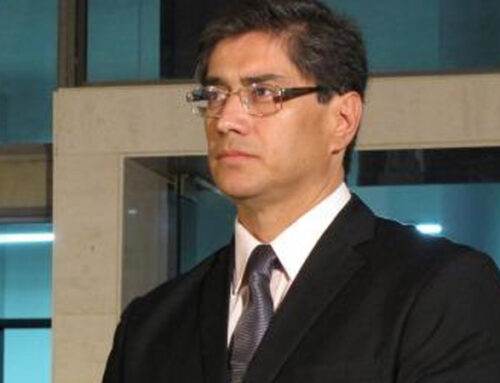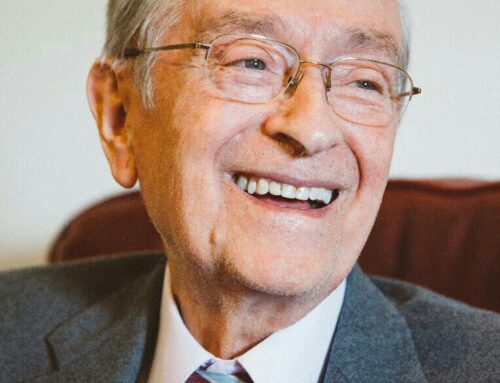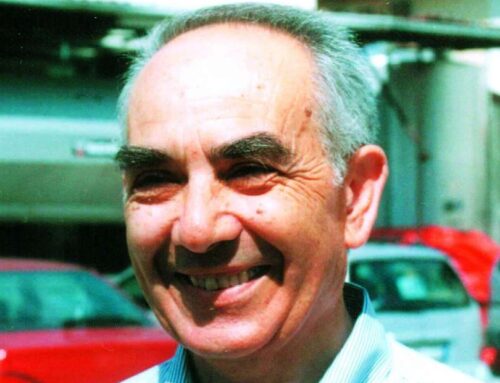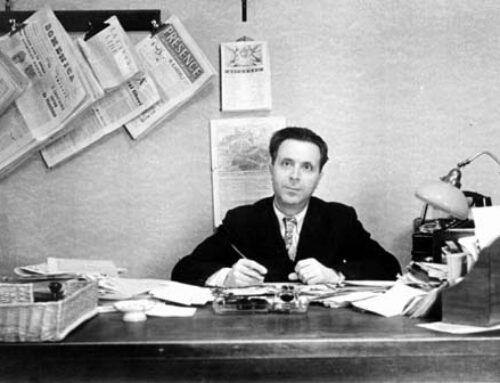Domenico Fioravanti
The politician, for him, was the one who knows how to look afar, who knows how to “dream” and who knows how to work to give shape to these dreams.
(from the story of his daughter Clara)
Domenico Fioravanti was born in Camerata Nuova on 13 June 1938. He was marshal of the Finance police corps and a passionate political leader in Trent.
We report below what his daughter Clara told a group of Italian parliamentarians to introduce him.
“My dad lived the political commitment as a citizen, as a passionate militant in a party, as a public official in the Guardia di Finanza and as a representative of parents in the representative bodies of my school and my sisters.
He left for Paradise two months ago, on September 14. We lived together the phrase from the Gospel that says: “Behave as citizens worthy of the Gospel”. Thinking back on Dad’s life, I realize that he truly incarnated this Word of the Gospel.
Since childhood he had begun to take an interest in politics, always trying to understand, to get to the bottom of things. Born into a poor family, he felt that politics should deal first and foremost with the last, with those who have no privileges, with those who struggle to live a dignified life. So, he made his choice of camp, siding with those who seemed to him animated by a genuine interest in the last, and not just demagogic.
Later, he enlisted in the Guardia di Finanza, and even in that world, often so difficult, he always managed to behave as a “citizen worthy of the Gospel. He carried out his work with great respect for the law, but also for those who were ahead of him and never backed down when faced with difficult or dangerous services.
I remember an episode that remained indelible in my mind; I was a child, I must have been five years old, and Dad received a Christmas package from a company at home. I don’t remember what was in it, but I remember my childhood enthusiasm when I saw how many beautiful presents they had sent us. I knew that the presents were a sign of esteem, of affection, so I was amazed when I heard Dad say to Mom, “Send it back. Dad then explained to me that the package contained “too big” gifts that were certainly not a sign of esteem, but an attempt to bribe him. This was Dad: rigorous and inflexible (…): many company directors, amazed by his calm, his courtesy, the respect he showed them, asked him, once the audit was over, why he behaved like that, and why he didn’t take advantage of the situation to obtain a favorable price or the goods as a gift….
His respect went to everyone, even those who had broken the law. This was very strong in him: even when he had to search a house, or when he had to arrest someone, he still tried to do so with respect. He took back colleagues who ransacked closets and drawers and used handcuffs and abrupt manners with suspects, scaring them and their families.
The same respect also characterized his actions towards his superiors, but he demanded consistency and transparency: once he had received an order on the phone that he did not agree with and refused to comply with it until it arrived in writing. The order did not arrive and he did not carry it out. Within a few days, however, a transfer order arrived.
At that time – I believe it was the mid-eighties – Dad worked in the hydrocarbons section, in which he was very experienced, having also participated in the investigation of the oil scandal. From there he was sent to the verification section, with new colleagues and very new tasks: he came as a marshal but he should have learned everything from the youngest brigadier. He was able to adapt to the situation without drama, with commitment and humility.
Years later he told us about this episode when life’s situations put us in front of seemingly meaningless defeats: he had adapted to having to learn verifications from the ABC without stopping at being disappointed by injustice, and this was of great help to him years later when, once transferred to Trento from Rome, he continued to work in the same field in which he had become an expert.
This way of acting, of course, also put him in danger; once during a particularly delicate service, he had received threats. In particular, these people had made it clear that they were stalking us and that they could harm us three daughters. The family was everything to Dad; despite this, he continued his work. He didn’t say anything to us, limiting himself to recommending to our mother not to let us go out alone “because there are cars”.
Dad searched for the same “purity of heart” in politics, of which he had a very high concept: the politician, for him, was the one who knows how to look far away, who knows how to “dream” and who knows how to work to give shape to these dreams. To be a politician it is not enough, according to him, to limit oneself to today, to bureaucratic work, no, one has to look ahead and make great projects. Dad was a passionate follower of national and world political life, he knew how to read the signs of the times and was looking for someone on the political scene who had these characteristics of wisdom.
Local politics attracted him a little less; however, he felt he had to make an effort there too, precisely because the ability to “look ahead” can characterize all realities, large or small. Hence his commitment in the district and city section of his party, in which he was an attentive and critical mediator, but also a proactive and common sense voice. The ideal of fraternity, which had fascinated him, pushed him to seek dialogue with everyone: members of his party and members of other parties, while remaining, as he said, “colorful”.
His ideas remained rooted, but before them he placed also a dialogue with his interlocutors. He didn’t attack his political opponents, he preferred to discuss ideas, perhaps with a sense of excitement, but without ever making something against them.
Dad was the politician who, going down the street, greeted the mayor with the same joy with which he greeted the street sweeper in the square where he parked: this gentleman then greeted us girls saying that Dad was a “high up”, a politician and once he even asked him to help him get a promotion. Another time some old ladies he met at mass proposed to him to sign a petition to the town hall: dad didn’t sign because he didn’t agree and a few days later he brought them photocopies with the town hall’s deliberations and newspaper articles to motivate his choice: because he was looking for the truth and wanted everyone to look for it, and to be able to evaluate it in the light of the facts.
Now that Dad is in Heaven we feel strong that we want to carry on his legacy, made of love for the truth, coherence and a life based on the ideal of fraternity/unity. In my work I feel more and more strongly the need not to be content with solutions of convenience, or to close my eyes to problems and – if I can’t do anything else – I try at least to make my voice heard, while maintaining respect for my superior and colleagues. It is not an easy path, which also leads to defeats (at least according to human logic), but we are certain that it is the path that Dad shows us to become “citizens worthy of the Gospel”.


